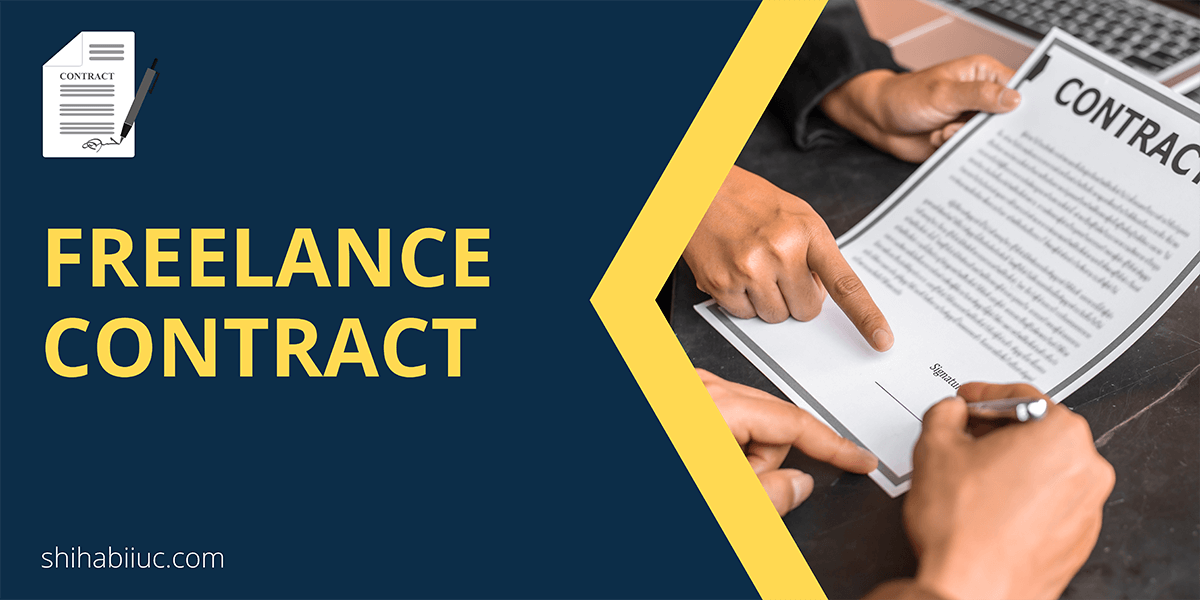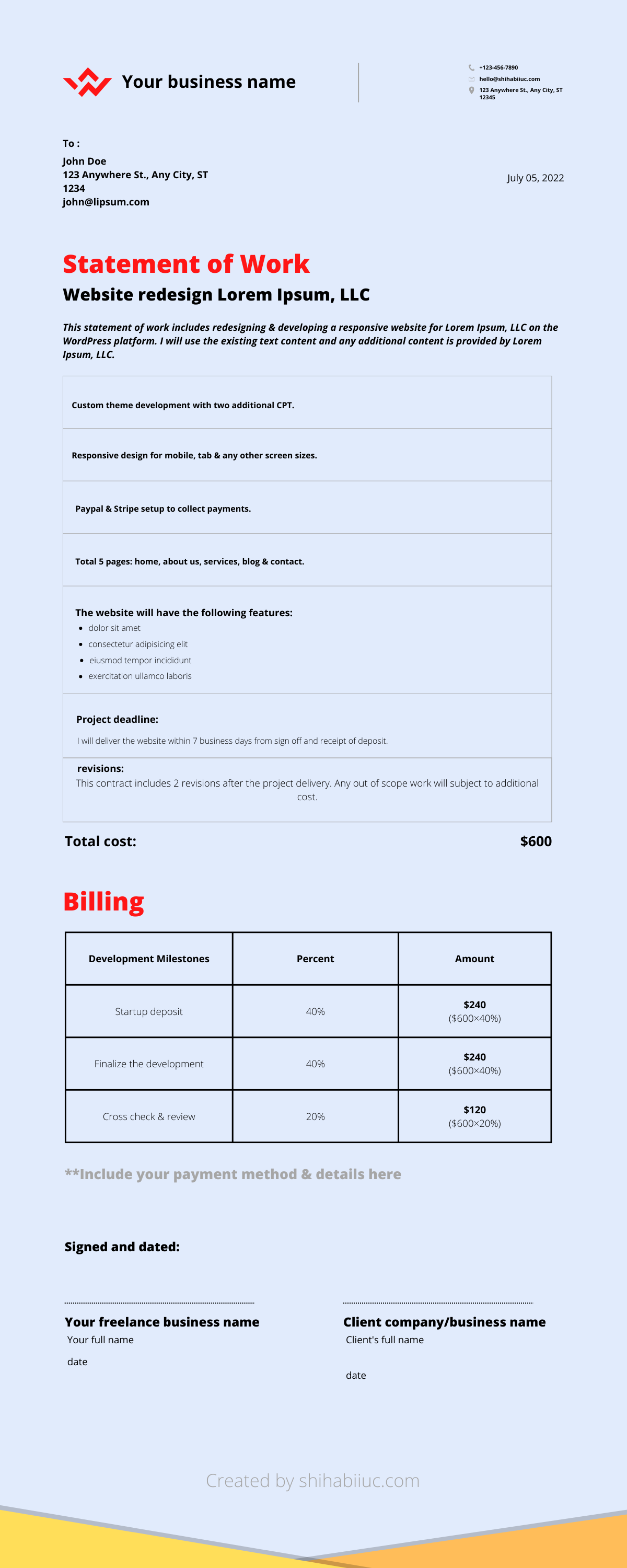
Contracts are essential for your freelance business if you work with clients directly. Some of you may not have noticed the importance of contracts yet. Especially, if you work via a freelancing marketplace website such as Upwork, Fiverr, PeoplePerHour, etc. Because you’re serving someone else’s clients and not yours.
But if you’re serious about your freelance business and if you work directly with your clients, you do need a contract that elaborates the scope of work, quote (price), deadline, etc.
What is a freelance contract?

A freelance contract is simply an agreement between you and your client. It includes the following things:
- Your business information: A contract starts with the basic information of your business such as the name of the company/business, logo, address, website, contact detail, etc.
- Client information: You also have to include the client’s information such as their business name or person’s name, address, etc.
- Scope of work: This is the by far most important aspect of freelance contracts. In this scope of work, you have to clearly describe what exact tasks you will do.
- Additional resource specifications: Many freelance projects need 3rd party resources such as tools, digital assets, graphics, images, plugins, logo, content, etc. As a freelance contractor, you have to specify the cost of these additional resources and let the buyer know if any of these are excluded from the quote.
- Project deadline: You should not work sine-die or no buyer will wait for the final product with no appointed date. So you have to include a project deadline and deliver the project within the estimated time frame.
- Order cancellation and refund: It’s not mandatory but some projects will require the cancellation and refund terms. A very few of the buyers may want to cancel the order during the process. It’s your job to specify whether they can cancel the order or not (during the project) and what if they don’t like the service after you deliver the order.
Not to mention, you should charge the client upfront and even before you start working. It does not necessarily need to charge the full amount (at the beginning). But you should charge at least 20/40 percent of the total cost. Otherwise, your client may become dormant during the process.
How to create a freelance contract efficiently?

The first step in this process is to collect all the necessary information regarding the project. You can discuss this with your buyer or send them a form to fill out. Whatever you do, you have to collect all the information they need.
Also, you have to ask yourself if you’re capable enough to perform the job. If not, then you should not create the contract or accept the work. In this case, you have to politely tell the client that it’s out of your expertise.
Anyways, assuming that you’re capable enough to fulfill all their requirements and able to deliver the order within a stipulated time. Let’s estimate the cost.
Estimate the cost of the specific task
You got all the necessary information to perform the job. Now it’s time to estimate the cost of the specific freelance project.
Before you start calculating the cost, keep the following things in mind:
- How much time (in hours) do you need to complete the order?
- Do you have to buy anything to complete the order?
- How many days do you need to deliver the order?
- Have you got all the necessary assets and information from the buyer?
- Is there anything the buyer needs but they don’t know or aren’t aware of?
How to calculate the total cost of the project?
If the estimated time is 20 hours, then multiply it with your hourly rate. For example- if your hourly rate is $30 then the cost will be (20 hours × $30) = $600.
Then add any additional costs for purchasing 3rd party tools, digital assets, themes, plugins, etc with the $600.
This is how I calculate the cost of any web development project. But this exact same process is also applicable for any other type of freelance work.
Freelance contract sample
Up to this point, I discussed a lot about freelance contact. Now you know what involves in contracts, how to calculate the cost & specify the scope of work.
Now see a real-world freelance contract as a sample. So you can create your own contract or edit this template to meet your unique requirements.

Download contract template
Download this freelance contract sample in PDF format so you can edit the template.
Download Freelance Contract TemplateWhy do you need a freelance contract?
You need a contract with your client to stay safe. This safety is both for you & the client. A freelance contract can help you in the following matters:
- If anything goes wrong with your order, the contract can help & save the day.
- Your client can’t ask for additional work without extra money.
- It specifies the scope of work.
- You have a clear deadline.
- It makes you professional.
- Contracts help you to attract high-paying clients.
- Your client can’t cancel the order without a valid reason.
Do you need a lawyer to create a contract for a freelance business?
It does not hurt if you contact a lawyer but it’s not mandatory for freelancers. Most freelancers are solo entrepreneurs. So you don’t need a ten-page legal contract for freelance work.
Also, your buyers don’t want to invest too much time understanding legal jargon.
So I prefer to keep things simple and standard. I have been doing this since 2016 and never had any issues with these simple contracts.
Conclusion
A clean & simple freelance contract ensures your safety and saves you from unwanted out-of-scope. It also helps your buyer and they know what exactly they should expect.
To run a freelance business professionally, you don’t need a super fancy & highly designed contract.
You can write the contract yourself in a word document or excel sheet and send it to your prospect in a PDF format.


